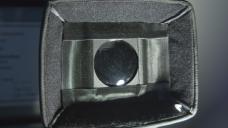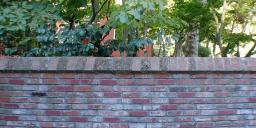
Best Anamorphic Adapter for about 1000USD ?
-
Hi guys,
I'm really getting into the Anamorphic topic now as I will be shooting my student project at my film academy next summer.
I was wondering, If i were to get about 1k - if there was any adapter out there for me with the possibility of rack focusing and getting reasonably close to the subject?
LA7200? Iscorama? Hypergonar Hi-Fi2?
Does any of this mean anything to you?
Help is much appreciated! Have a great day! :) -
LA7200 Diopter mounting for lenses 24mm and longer. Cinetactics Matteblox anamorphic and velcro. Bigger diopters cost vast amounts more, but they can be mounted the same way.
If you really wanted to do it proper, you'd need 6x6 diopters in a 6x6 mattebox and cover the la7200 with that on rails. Of course you could take it apart, since it's held together with screws, and build something else to hold the optics.

 diopter mount.jpg900 x 506 - 193K
diopter mount.jpg900 x 506 - 193K -
The Bolex Moller 16/32/1.5x is absolutely epic, and I'm claiming it the best dual focus anamorphic available.
Following attributes:
- 1.5x like the Iscorama
- As sharp as a sharp thing (possibly as good as Isco - although no direct experience)
- Great performance right to the edges
- Focuses to a bit under 3.5ft
- Doesn't soften at wide apertures (tried down to 1.4 on Canon FD 50/1.4)
- Doesn't vignette on a Canon FD 28/2mm lens (52mm thread)
- With modification to clamp I think it will get to 24mm (possibly even 20mm with the Panny 20/1.7, Voigt 25/0.95 might be interesting!)
- It's quite small and light (compared to Kowa Prominar 8Z/16H and Iscorama)
So any negatives?
- Well, it can't rack focus, but we knew that.
- The mount is a little odd and makes hard work of getting the rear element as close to the front element of the taking lens. There is a thread though (via a removable collar for mounting on projector) that might be a step down ring possibility.
- They're quite rare
I bought mine for about £550 from Canada.
I've not tested lens characteristics for flare and blooming yet, so more to come later. I'm very please with it, can you not tell? :-)
Tim -
@fatpig
Using a narrower focal length will reduce barrel distortion. Stopping down to a narrower aperture will in many cases sharpen the image. Prime lenses tend to produce better results than zooms, but it's always case-by-case. -
lpowell, thanks for the precise info! is it correct, that, if I would zoom in slightly / take something like a 35mm prime lens, the problems on the edges would be gone?
-
@fatpig
With the rear anamorphic lens element in the Optex in its standard orientation, its range extends from infinity to about 8 feet. If you reverse the rear element, it can handle close-up shots to about one foot, but no longer converges out to infinity. -
hey lpowell, that does not seem to be a problem too bad on the optex. if the barrel distortion comes from the taking lens..
do you know the close focus of the optex? -
@fatpig
The effect at 0:19 is barrel distortion rather than anamorphic astigmatism. The problem that anamorphic adapters have at their wide edges is not geometric distortion, it is a blurring effect due to lens element convergence issues across the wide field of view.
Here's an example from a Century Optics 37mm 1.33x anamorphic adapter, combined with a Lumix 20mm pancake lens. The barrel distortion is due to the wide-angle focal length of the 20mm lens. The soft-focus effect at left and right edges of the frame is due to anamorphic astigmatism.
 brickwallcentury1920x810.jpg1920 x 810 - 506K
brickwallcentury1920x810.jpg1920 x 810 - 506K -
Thanks for the input, ill try some research, it seems the LA7200 is not as extreme in panning shots, maybe caused by the larger optics with less curvature?
-
@fatpig, yeah I think what is causing the barrel distortion in that video is the 14mm taking lens, not the anamorphic adapter.
-
The effect you're speaking about at 0:19 is distortion caused by anamorphics.
An anamorphic adds in many ways a wide-angle adapter. The field-of-view of the lens is widened horizontally by the amount from the anamorphic. A 1.33x adapter (LA7200, Optex and so on) at the wide end (14mm) will give you a FOV 1.33x times that horizontally, having the same as a 10mm lens, plus it adds a lot of barrel distortion.
Cine-anamorphics has a 2x factor. This is why people say you get less depth of field with an anamorphic: You adjust to the comparable focal length of your horizontal field-of-view. So if you wanted to use a 25mm, you would put on a 50mm (or 35mm in the case of 1.33x anamorphics). Look at a film like "Poltergeist", which uses A LOT of wide-angle and you will see distortion like that all over the place. -
it is very apparent in this video at 0:19
this is something i think the la7200 does not have. it would destroy the filmic look to a certain extent, i think.
how close can the optex focus? -
@fatpig
No, it's not what I'd call a fisheye effect, more like a curvature in the plane of focus at either side of the frame. -
Thanks for your help guys, i really appreciate it! :)
i would be solf on the optex/century optics, but the slight ca/distortion on the edges seems to result in some kind of fisheye effect while panning in wide shots, can you confirm this?
I am currently under the impression that the la7200 is about the same as the optex, considering versatility / focusing distances. is this right? -
@fatpig
The Optex has a 1.33x squeeze ratio and produces more subtle flares than 1.5x or 2x anamorphic adapters. However, if you point it directly at a bright light, ala Spielberg, it will give you long horizontal flare beams.
Anamorphic adapters typically use two lens elements to produce a non-focused wide-angle adapter with different magnification ratios in horizontal and vertical directions. To produce sharp results, the astigmatism of the two lens elements must be aligned to converge close to the focal plane of the normal lens that you're using with the adapter. The "focus" ring on an adjustable adapter allows you to converge the anamorphic elements manually.
On a fixed anamorphic adapter, the lens elements are set to converge at infinity and typically have a working range down to about 6-8 feet. You can use a diopter in front of the adapter to pull it in for close-focus shots. The Optex happens to have a rear anamorphic lens element that can be removed and put back in an inverted position, which makes it work in close-focus range without needing a diopter. -
You can focus without a diopter, but only to minimum focus distance, which can vary a lot. The best focussing anamorphics go down to 5ft, and even then that can not be enough. That's where diopters come in.
-
The optex does look tempting, as its really lightweight. does it also have the typical flares? what is the focusing distances on it?
What I dont currently understand: If I chose an anamorphic adapter with independent focusing, would this be possible without a diopter? if not, what are the advantages? -
For prime lenses 35mm and narrower, I use an ISCO Widescreen 2000, which you can sometimes find on eBay for $700-$1000. 1.5x squeeze factor, and sharp across the full width of the frame.
For wide angle prime lenses, I use an Optex 1.33x adapter with a custom lens hood. Not quite as sharp as the ISCO in the corners, but lightweight and flexible. There is also a Century Optics version of this adapter. Here's a link to a review:
http://www.gthelectronics.com/anamorph.htm -
Rack focussing is the problem, limiting you to either focus through, or Iscorama.
You're not going to get an Iscorama for a $1000. So focus through is your only choice for rack focus. That leaves you with LA7200, Century, Optex and Soligor (generic).
The LA7200 is the most versatile, getting you in the 14mm range, and better quality. But, getting a diopter to cover that massive front element is problematic. Meaning close focus and wider apertures are limited. The one choice you do have is some custom rigging of a 72/77mm diopter. This won't cover the field ov view at WA, but should get you in close from 28mm upwards, which is where you'd typically start to use close focus anyway. It won't help you for low light WA though. You will be able to source a LA7200, diopter(s) and step down rings for under $1000 if you're patient.
The other focus throughs won't give you the large front element headache, but they're a bit softer in the corners and won't go as wide.
Start New Topic


Howdy, Stranger!
It looks like you're new here. If you want to get involved, click one of these buttons!
Categories
- Topics List23,980
- Blog5,725
- General and News1,352
- Hacks and Patches1,152
- ↳ Top Settings33
- ↳ Beginners255
- ↳ Archives402
- ↳ Hacks News and Development56
- Cameras2,362
- ↳ Panasonic992
- ↳ Canon118
- ↳ Sony156
- ↳ Nikon96
- ↳ Pentax and Samsung70
- ↳ Olympus and Fujifilm100
- ↳ Compacts and Camcorders300
- ↳ Smartphones for video97
- ↳ Pro Video Cameras191
- ↳ BlackMagic and other raw cameras115
- Skill1,960
- ↳ Business and distribution66
- ↳ Preparation, scripts and legal38
- ↳ Art149
- ↳ Import, Convert, Exporting291
- ↳ Editors191
- ↳ Effects and stunts115
- ↳ Color grading197
- ↳ Sound and Music280
- ↳ Lighting96
- ↳ Software and storage tips266
- Gear5,417
- ↳ Filters, Adapters, Matte boxes344
- ↳ Lenses1,580
- ↳ Follow focus and gears93
- ↳ Sound498
- ↳ Lighting gear314
- ↳ Camera movement230
- ↳ Gimbals and copters302
- ↳ Rigs and related stuff273
- ↳ Power solutions83
- ↳ Monitors and viewfinders340
- ↳ Tripods and fluid heads139
- ↳ Storage286
- ↳ Computers and studio gear560
- ↳ VR and 3D248
- Showcase1,859
- Marketplace2,834
- Offtopic1,319
Tags in Topic
- gh2 1278
- anamorphic 153
- adapter 99





